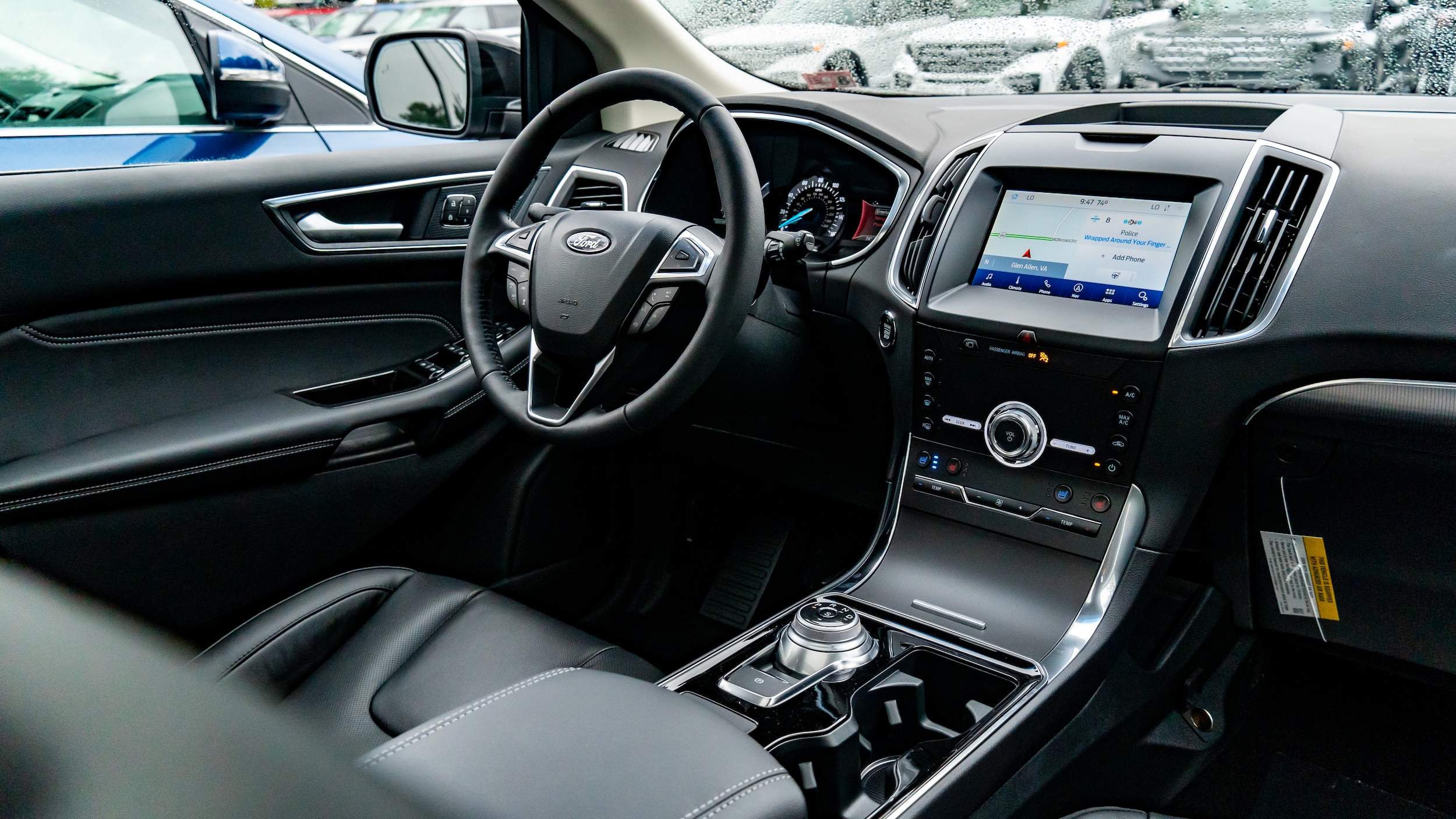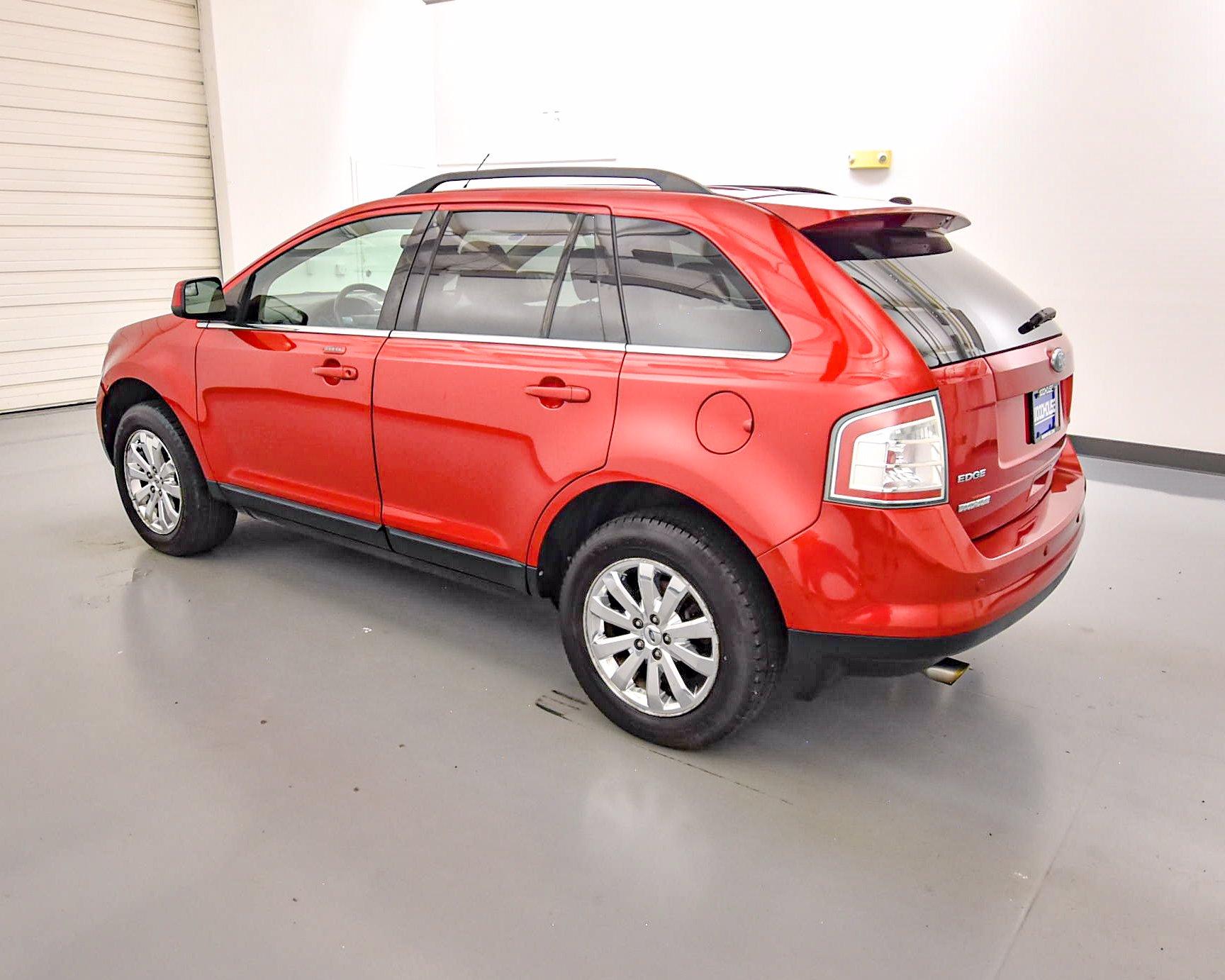
The vehicle has never been in an accident, curb impact or other driving conditions which would cause such a failure.
2010 FORD EDGE LIMITED INTERIOR DRIVERS
"Serious failure of the drivers side front wheel bearing and was unexpected. Otherwise, it's been a very good vehicle for our family." "Only vehicle out of twenty-four, that I've owned during the past two decades which I've needed to replace on separate occasions, two worn-out front wheel bearings. "loose tire pressure sensor inside tire caused vibration in steering wheel" Brought in to mechanic and entire system needed replacement." "Sway links broken, most likely due to pot holes" Steering linkage (includes rack and pinion)

The front shocks were just replaced (no leakage, but some sound and bumpy issues)" We had them replaced (leakage), then had them redone (leakage) about 6-12 months afterwards. "The issue we had was mostly related to high mileage - but the rear shocks went out twice in the last year and a half.

"Leaked and needed replacement after 42K miles" This was a substantial repair and per the dealer required us to stop driving to avoid further damaging the vehicle." "My wife hit a pothole or an unadjusted manhole cover and broke the right front strut. "General mileage and use of the vehicle on rough and bumpy roads in the northeast meant it was time to replace shocks and struts" It has not been repaired as yet as I refilled the cylinder with fluid which says will stop the leak. "The steering system made grinding sound and grinding feel. The replacement hose has a piece of rubber inside the clip and therefore doesn't cut into the rubber hose. "My mechanic said that there is a metal clip that cuts into the power steering hose. "minor leaks or seepage at the reservoir or at the pump connection"

"The one power steering hose rusted through and created a significant leak." "Tubing for the power steering system developed rust causing a loss of fluid. "I had a leak and need to get a new power steering pump." "When a first applying brakes heat a grinding sound" "There is a louder grinding sound when I first back it out of my garage." "A loud noise, but we could not determine where it was. I think the only thing left is to replace the calipers." "We had the rotors and pads replaced a couple of times but we can't get rid of the squealing when we back up. "pulsing after a very short period of time" "First time in 67,000 miles that I needed brake work" "Pitted from low millage and had to replace front and back. Then they developed a shimmering when brakes were applied. "The brakes started making a rasping sound early on. Problems with noises required changes with back replacement brakes with less than 30% wear" "replacement parts installed did not match quality of OEM parts" "A consistent problem of about once a year since purchase" "Low break pedal, had break system flushed, solved problem which was probably air" "At 107,000 miles had rear rotors turned and pads replaced. "The brakes just gradually wore down and were replaced at my dealer's shop." I decided I wanted the brake service at 90000 miles." They stopped selling the ring so you have to buy the whole axle to repair it!" "Cracked ABS ring on axle causes braking pulsation. "Answer related to prior answer, likely air in brake line" The most recent was when the front axle teeth, which the sensor read, were broken so the front axle needed to be replaced. "The ABS light has come on twice in the past four years, first time was a simple sensor replacement. An X indicates that the vehicle was not manufactured for a specific year. N/A indicates that we did not receive a large enough sample size to provide data for a specific year. Our subscribers provide great insights into their satisfaction by answering one simple question: If they had it to do all over again, would they definitely buy or lease the same model? In addition, respondents also rate their cars in six categories: driving experience, comfort, value, styling, audio, and climate systems. To learn about satisfaction, CR has collected survey data from our annual survey on more than half a million vehicles. Based on this data and further analysis, we predict reliability for the latest year. Extra weight is given to the more serious areas such as major engine or transmission problems. The results are presented relative to the average model that year. Consumer Reports subscribers reported on any serious problems they had with their vehicles during the past 12 months that they considered serious because of cost, failure, safety, or downtime, in any of the trouble spots included in the table below. The reliability charts are based on responses on hundreds of thousands of vehicles from our latest Annual Auto Survey.


 0 kommentar(er)
0 kommentar(er)
